“The year was 1996.”
Dr Sunil Shroff’s voice softens as he narrates a life changing incident that happened back then.
The 70-year-old urologist and renal transplant surgeon was about to perform one of his first few ‘deceased organ donations’ on a 12-year-old boy who died of a cobra bite. The surgery was scheduled at the Sri Ramachandra Medical College and Research Institute (SRMC & RI) in Chennai.
Dr Shroff explains how after the initial treatment failed, the young child was declared brain dead at the hospital. The doctors there waited for five days for him to recover, but he, unfortunately, did not.
They hesitantly approached the grief-stricken father and asked him whether he would donate the boy’s organs, which his father consented to. Two kidneys, a heart and two corneas were harvested and transplanted in five individuals, giving the gift of life to five people.
It made the hospital famous as it was only the fourth hospital to perform such a procedure in the country. This unique case of organ donation from a snake bite victim was published in an international journal as well.
From there began Dr Shroff’s dedicated mission to promote deceased organ donation and transplantation in India. To facilitate his mission, he established the not-for-profit MOHAN (Multi Organ Harvesting Aid Network) Foundation in 1997.
At present, Dr Shroff is a senior consultant of urology and transplantation at the Madras Medical Mission Hospital in Chennai. He is also the managing trustee of MOHAN Foundation. Notably, he was the first Indian surgeon to perform a successful kidney transplant on an HIV positive patient.
According to data with the MOHAN Foundation, 10 lakh people in India suffer from end-stage organ failure every year. Only 16,041 receive live-saving organs annually.
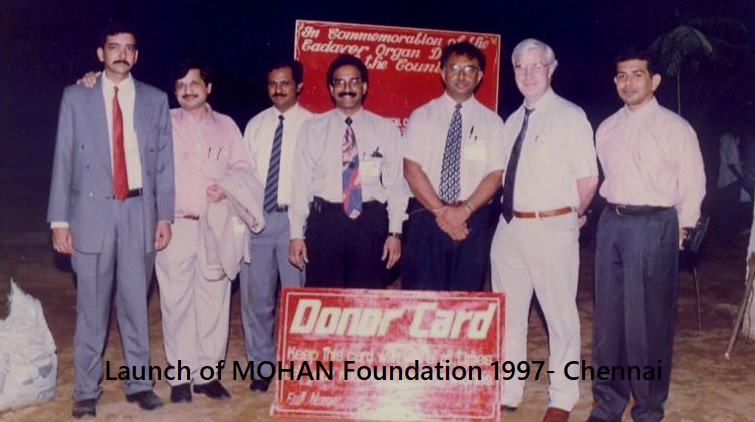
How it all started
Dr Shroff was born and brought up by his grandparents in Sahibganj, a small railway town in Bihar.
He describes himself as a fearless, risk-taker and a free-spirited child. “I once saved a friend who was drowning in the Ganga river. Also, responding to a dare from my brother, I jumped from the first floor. I am surprised I survived! These qualities in me shaped my life and career,” he says.
Years later, when he got married and became a father, he found that he could not support his family as doctors did not get paid well in India at the time. He left for the UK where he lived for 12 years and completed his Fellowship of the Royal College of Surgeons (FRCS) and Diploma in Urology in the UK in 1990.
“I had promised my mother I would return to India. Also, I felt a strong sense of belonging to India though I was well-settled in the UK. My colleagues would often tease me about the kidney transplant scandals in India. That hurt my feelings as when you are abroad, you become the representative of your country. I wanted to come back home and do something to change the situation, so I returned in 1995,” he explains.
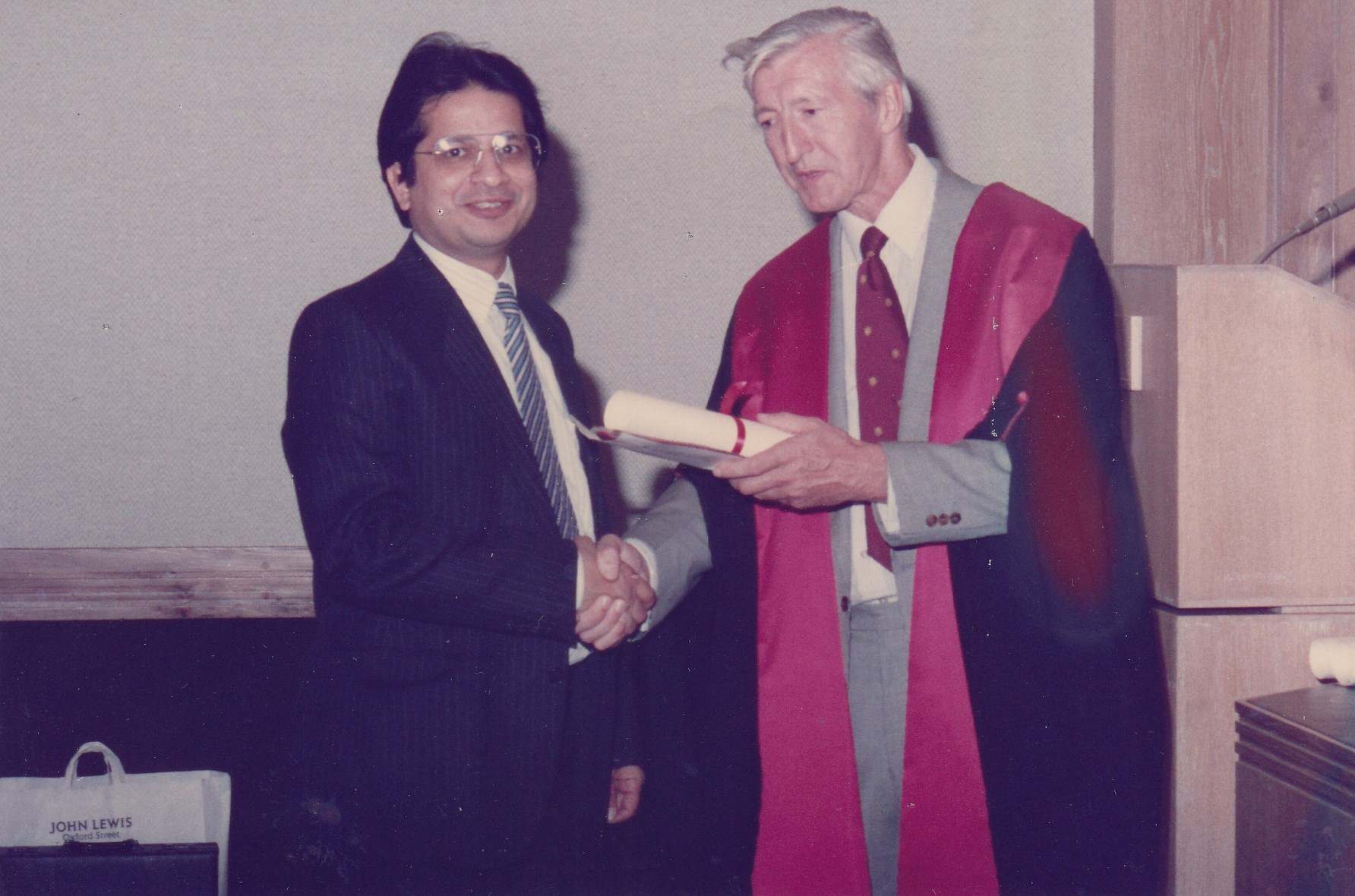
Boost for deceased organ donation
It was an opportune time to return. The government then had just passed the Transplantation of Human Organs & Tissues Act (THOTA), 1994. The law accepted brain death as legal death which was a huge boost for deceased organ donation.
After a natural cardiac death, only a few organs and tissues can be donated (like the cornea, bones, skin and blood vessels), but after a brain death, eight solid organs, including the vital organs like kidneys, heart, liver and lungs, and almost 50 tissues, can be donated as well.
“The Act also made commercial dealings in human organs a punishable offence. It is the toughest law in the world as far as organ donation is concerned. The number of scams in kidneys have come down considerably,” says Dr Shroff.
As a renal transplant surgeon, he became aware of the huge shortage of kidneys in India. “I would see the agony and desperation in the eyes of caregivers and family members when no suitable kidney donor was available in the family. So, we had to have an alternative to ‘live donations’. The answer was deceased organ donation,” he says.
But there was no support system or awareness in the country at that time. The doctors themselves felt that brain death was too complex to be accepted by the public. They did not feel that deceased organ transplantation was possible in India, he rues.
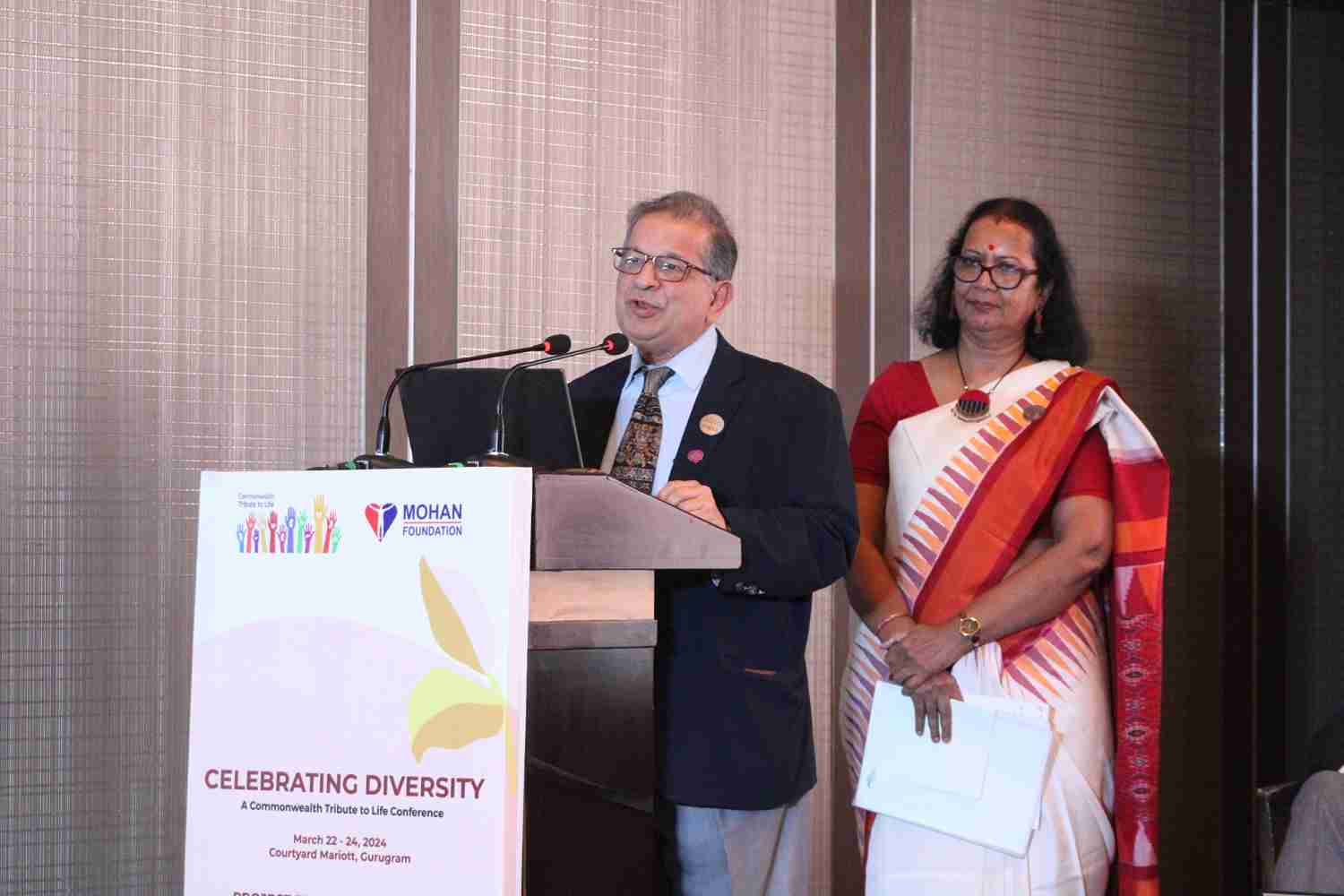
Establishing MOHAN Foundation
“That’s why we set up the not-for-profit MOHAN Foundation. It was meant to raise awareness about brain death and deceased organ donation. However, we soon realised that was not enough,” says Dr Shroff.
“We needed to train ICU doctors and nurses in identifying brain death, organ retrieval, counselling and support families at the time of their grief. Along with this, we also had to put systems in place at hospitals, and sensitise not only the general public but also the medical fraternity on this topic,” he adds.
The MOHAN Foundation focuses on deceased organ donation for two reasons.
One, in the case of the heart, lungs, pancreas and intestines, the organs have to come from a deceased person. Live donations can only take place in the case of a kidney and part of the liver.
Two, deceased organ donation and transplantation is a complex process that needs coordination between multiple stakeholders, he explains.
“We have used technology extensively. We have software that finds out which patient on the waiting list should be given the next available organ. We use apps to identify and certify brain death. We also use AI to predict organ failure,” says Dr Shroff.
The foundation has counselled more than 12,000 families successfully to donate the organs of their loved ones who are declared brain-dead. The conversion rate of such cases is high at 60-70%.
The organisation has sensitised over 250 million people on organ donation and trained around 4,000 grief counsellors or transplant coordinators and more than 61,000 medical professionals on organ donation.
The foundation has issued over 2.5 million donor cards. It has a helpline number: 18001037100 where queries on kidney, liver and other transplants are answered.
MOHAN Foundation has offices in Chennai, Bengaluru, Hyderabad, Imphal, Delhi-NCR, Chandigarh, Nagpur, Jaipur, Mumbai, and the USA.
It has also inked MoUs with nine state governments, including Uttarakhand and Manipur. In 2011, when the law was being amended, the foundation came up with several recommendations.
Now, the authorities ensure that hospitals have transplant coordinators before giving licences. Since April 2018, when a person applies for a driving licence, there is a pop-up from the transport authority asking whether he or she would like to pledge organs. The ICU doctors are also morally obligated to ask for organs from the family in case of a brain death.
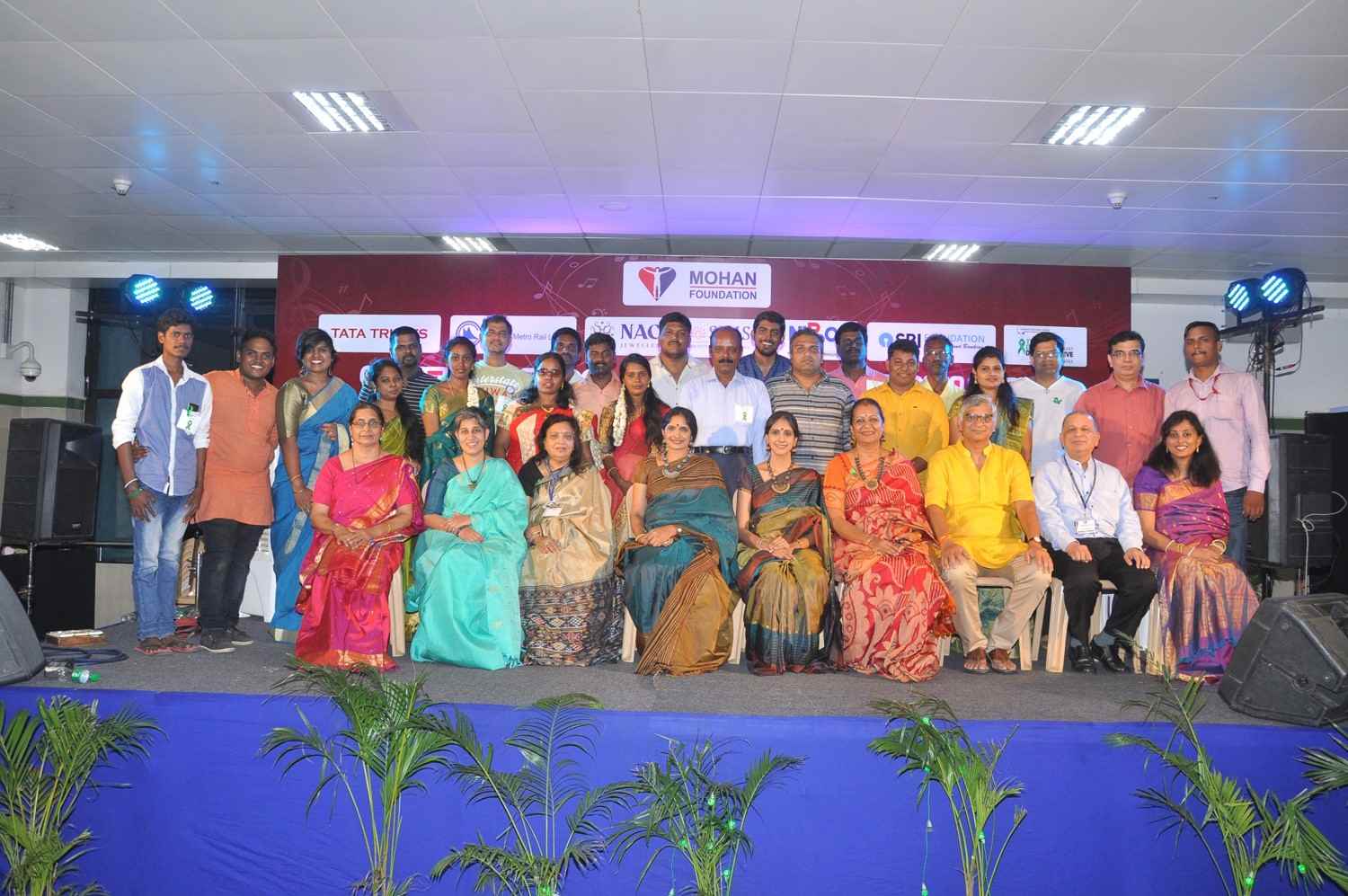
Significant rise in numbers
According to the Global Observatory on Donation and Transplantation, India has witnessed a significant increase in deceased organ donations post COVID-19. It surpassed a milestone by transitioning from three-digit donations to four digits for the first time, having had a total of 1,037 deceased donors in 2023.
In 2023, India conducted a total of 12,526 kidney transplants, 10,896 from living donors and 1,630 from deceased donors. Additionally, there were 4,173 liver transplants, including 3,338 from living donors and 828 from deceased donors. There were 221 total heart transplants, 191 liver, 21 pancreas and 14 small bowel transplants.
Challenges faced
According to the Directorate General of Health Services, Ministry of Health & Family Welfare, Government of India, some of the challenges in deceased organ donation are:
- Huge demand-supply gap.
- Poor infrastructure, especially in government hospitals.
- Lack of awareness of brain death among stakeholders.
- Poor rate of brain death certification by hospitals.
- Lack of awareness and negative attitude towards deceased organ donation.
- Lack of organised systems for organ procurement from deceased donors.
- Maintenance of standards in organ retrieval, tissue banking, and transplantation.
- High cost of transplantation, especially for uninsured and poor patients.
As per the DGHS, the National Organ and Tissue Transplant Organisation (NOTTO) takes responsibility for the following actions:
- Maintaining the waiting list of terminally ill patients requiring transplants – with details of hospital, organ needed, blood group and age of patient, urgency, and seniority in the waiting list.
- Matching recipients with donors.
- Networking with transplant centres, retrieval centres and tissue banks.
- Coordination of all activities required for procurement of organs and tissues, including medico-legal aspects.
- Assigning the organ retrieval team and making arrangements for transporting the organs to the allocated locations.
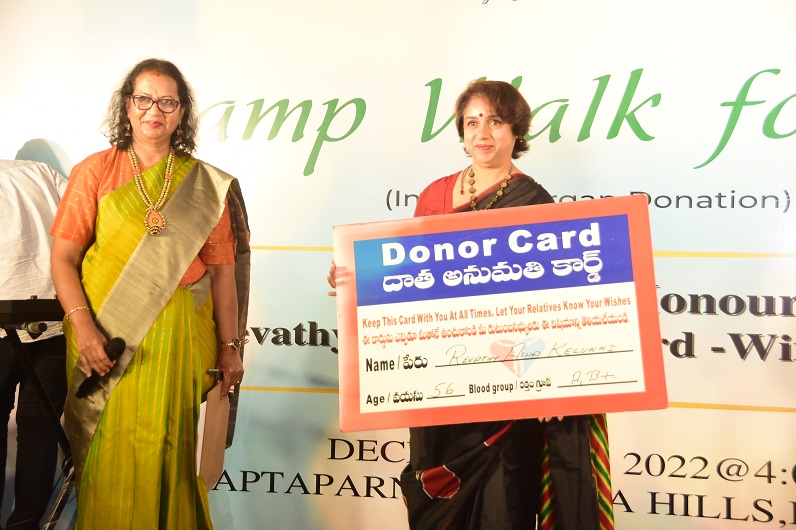
Counselling the family
Initially, Dr Shroff set up a protocol called the ‘Ramachandra Protocol’ while asking the family’s consent for organ donation. The doctors would start by asking for eye donation first since it was already popular, and then for the other organs.
“Talking about organ donation is not easy at a time of grief. We need to treat the grieving family sensitively and support them. We have to first convey to the family that their loved one is brain dead. We need to then explain what brain death is. We let the message sink in,” he explains.
“After five to six hours, before we switch off the ventilator, we ask the family whether they wish to donate the organs. We tell them that they can save many lives,” he adds.
Most brain deaths are due to road accidents. Doctors have two to three days after brain deaths to do a transplant surgery. Certifying a brain death is a complex process.
After that, the counsellors start a conversation with the family. If the family is convinced, multiple organs are harvested and distributed for transplant as per the waiting list of recipients. There is a lot of team work involved which is done by coordinators trained by the MOHAN Foundation.
“Age is no bar for organ donation. Our oldest donor was an 88-year-old trustee of the Gangaram Hospital. When he was declared brain dead, his kidneys and liver were transplanted. However, we are cautious about taking the heart and lungs of a donor who is above 60,” explains Dr Shroff.
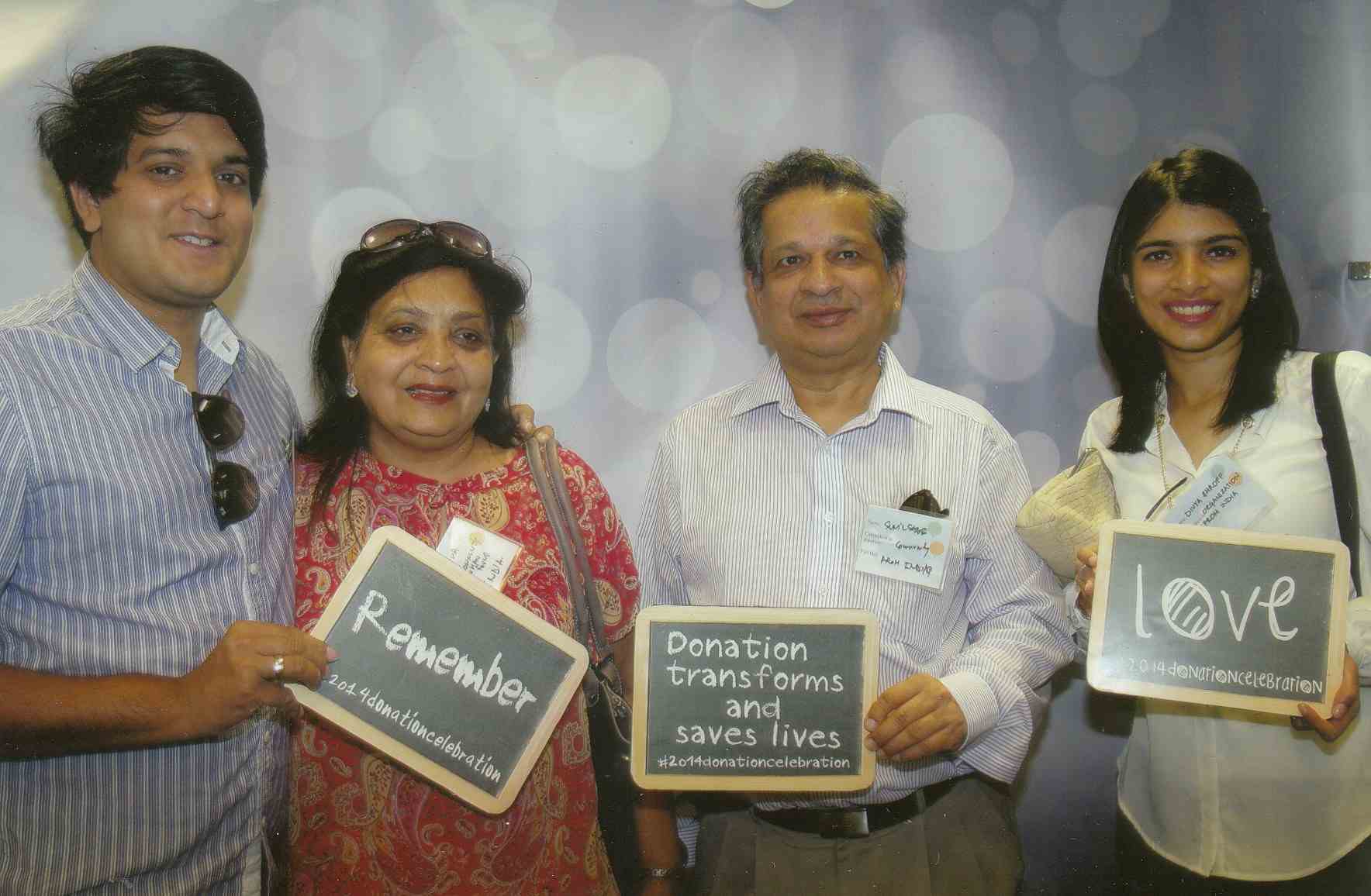
Appearance on KBC
In line with his work, Dr Shroff appeared on the Kaun Banega Crorepati (KBC) show in October 2020.
“The programme was aired without a live audience on account of COVID-19. I had requested for the set to be lit fully in green as that’s the colour for organ donation, and I won Rs 25 lakh for the foundation,” he shares.
“After the episode was aired, the MOHAN Foundation helpline kept buzzing for several days. We had 30 counsellors answering these calls 24×7. Some people donated huge sums of money to the foundation, while the organ pledges went up as well. It was very good publicity for our cause,” he relates.
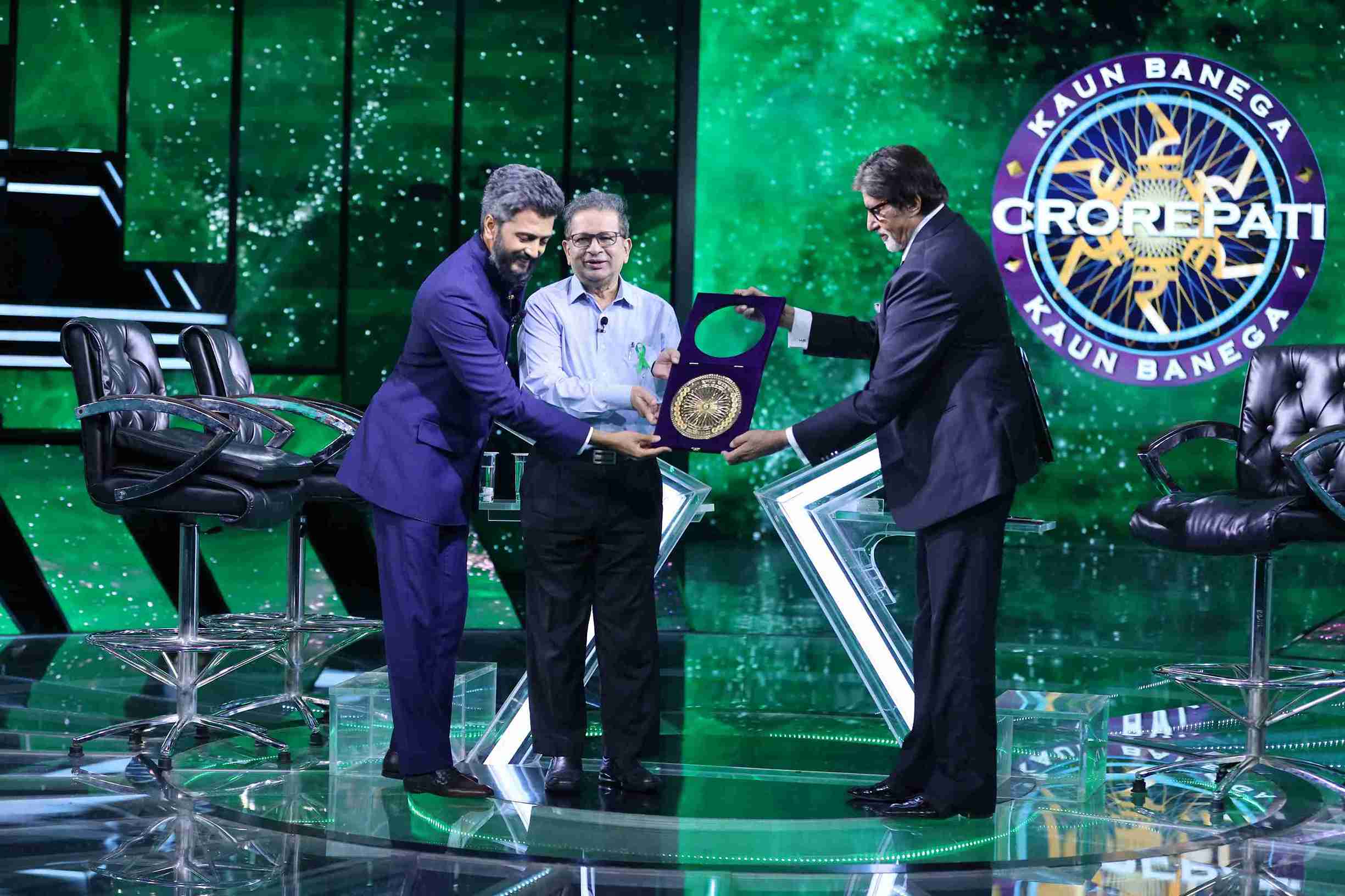
For their work, Dr Shroff and the MOHAN Foundation have been felicitated with several awards over the years.
To name a few, in 2015, the foundation was honoured with the British Medical Association South Asia Award for establishing a cadaver programme in India. In 2021, he was given the Lifetime Achievement Award from Grant Thornton Sabera.
In 2023, Dr Shroff received the Dr K C G Verghese Excellence Awards for Community Service. The MOHAN Foundation also received the ‘Best NGO Award’ in 2023 from NOTTO, DGHS on the occasion of National Organ Donation Day.
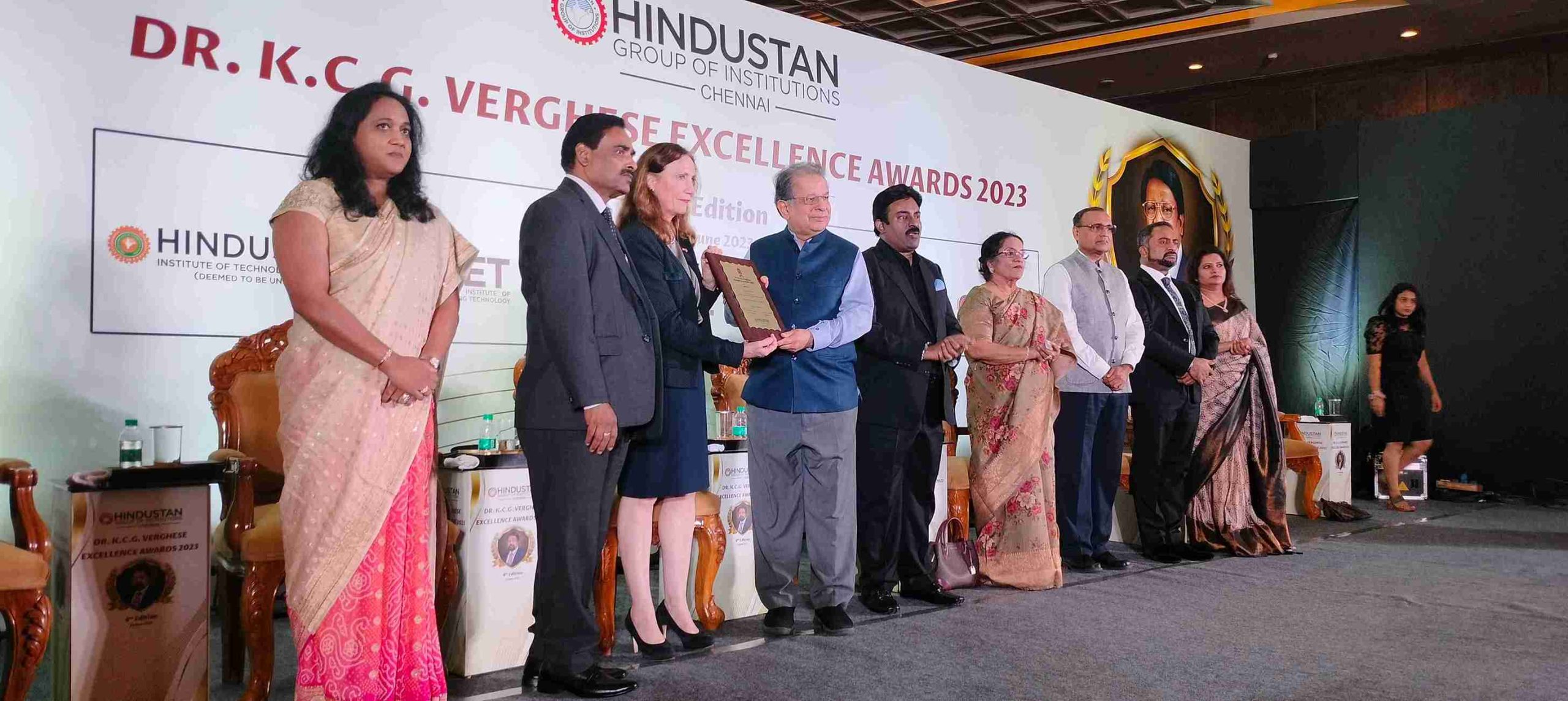
Dr Shroff is the Asia convenor of the ‘Tribute to Life for Commonwealth Organ Donation Project’. He is primarily responsible for establishing the ‘Indian Organ Transplant Registry’ in collaboration with the Indian Society of Organ Transplantation. This registry, a first in Asia, has been crucial for compiling data on kidney transplants in India and analysing their outcomes.
Dr Shroff believes that Indians are very emotional people; very giving people. “There is just some distrust with the healthcare system that has to be taken care of. More people will definitely come forward to donate the organs of loved ones,” he says with conviction.
“As a surgeon, I am deeply humbled to be part of this programme. During organ donations, I witness both ends of the spectrum – the profound grief of losing a loved one and the overwhelming joy and hope when a family member receives an organ. It truly embodies the cycle of life,” he says.
Edited by Padmashree Pande.
No comments:
Post a Comment